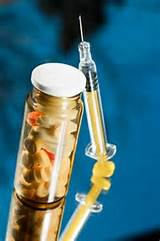
Medication always plays an integral role in any egg donation cycle to turn out successful. Essentially egg retrieval is not possible without the need for egg donors to use some special drugs and medication. This is because body conditions have to be regulated before the eggs can be retrieved successfully.
As an egg donor, you consequently have to be prepared to undertake a number of medical procedures prior to the donation. The following is a brief overview of all the major factors an egg donor needs to know regarding the medications for egg donors.Common Drugs Administered
There are a couple of drugs that an egg donor is expected to take. GNRH Agonists or GNRH Antagonists are some of the primary drugs that you’ll be given in preparation for the donation. Often you will only be given one of these depending on what the health professionals deem fit for you.
Both of the two are meant to prevent your ovaries from releasing eggs to avoid the chances of ovulation taking place before or during the donation. These drugs are primarily administered through injections in the thigh or abdomen. To fulfill your commitments as an egg donor, you may also be asked to administer these injections yourself at home.
Additionally, you will have to take hormone injection medication such as the Follicle Stimulating Hormone (FSH) and the Human Chorionic Gonadotropin (HCG). FSH is administered to mainly ensure that there are more follicles in the body hence more eggs are produced. HCG on the other hand sees to it that the eggs present quickly mature before the donation takes place.
These four drugs are the main medications for egg donors used in the majority of egg donation procedures.
You can visit You can read more about Medications and administering them here.
Why Do I Need Medication?
Simply put, there are two main reasons why medication is essential for egg donation. First, your normal cycle has to be stopped. If your ovaries continue working normally, retrieving the eggs can become virtually impossible. Moreover, unless the functions of your ovaries are brought to a temporary standstill, your body might not respond favorably to the fertility drugs you will be given. So the first set of drugs you’ll be required to take, probably for a week or two, will be to stop the functioning of your ovaries temporarily.
Secondly, medication is imperative to stimulate optimal egg production. Thus instead of having one mature egg as the case is naturally, there will be several mature eggs ready for retrieval.
Testing
Blood tests are also mandatory during egg donation. Egg donors have to be tested for STDs, genetic disorders, and insidious health threats such as hepatitis. Needless to say, signs of any detrimental diseases in your blood will prevent you from being considered an ideal candidate for egg donation.
Blood tests will also be used to measure how your body is responding to the medication in conjunction with vaginal ultrasounds. These appointments are done primarily in the mornings before 8:30 am during the egg donation cycle.
At Egg Donor Solutions, we find it important to educate our egg donors before deciding to donate. If you have any questions in regards to medications through the egg donation process please email or call us anytime. We welcome you to start the application process here if you know you are ready.

We help Intended Parents Create Happy Families via Egg Donation & Surrogacy with the help of caring Egg Donors & Surrogates.
What is Egg Donation, Can I be an Egg Donor, Egg Donation Process, Common Egg Donation Questions, Becoming an Egg Donor, Qualifying as an Egg Donor, Egg Donation, Egg Donor process, Why to go through an agency?, Egg Donation Overview.






